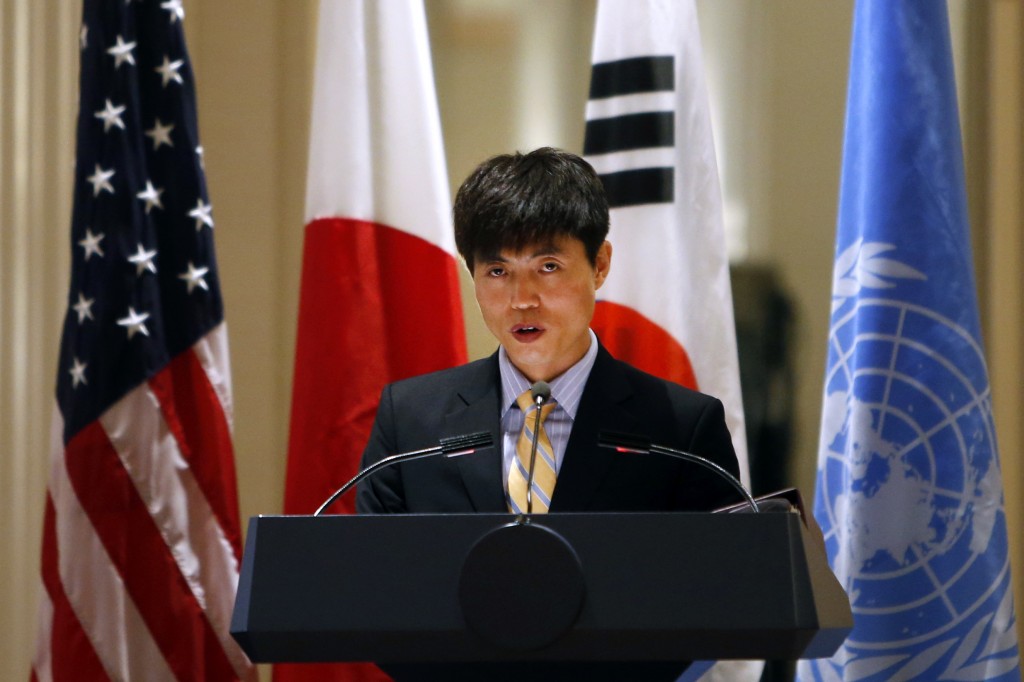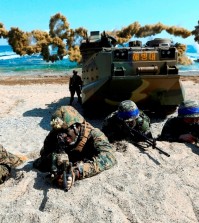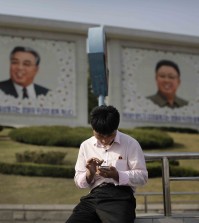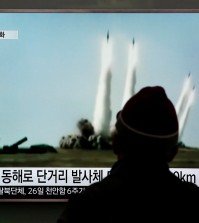- California Assembly OKs highest minimum wage in nation
- S. Korea unveils first graphic cigarette warnings
- US joins with South Korea, Japan in bid to deter North Korea
- LPGA golfer Chun In-gee finally back in action
- S. Korea won’t be top seed in final World Cup qualification round
- US men’s soccer misses 2nd straight Olympics
- US back on track in qualifying with 4-0 win over Guatemala
- High-intensity workout injuries spawn cottage industry
- CDC expands range of Zika mosquitoes into parts of Northeast
- Who knew? ‘The Walking Dead’ is helping families connect
UN official stands by N. Korea abuse allegations despite defector’s changed story

In this Sept. 23, 2014, file photo, North Korean human rights activist Shin Dong-hyuk delivers remarks during an event on human rights in North Korea at the Waldorf Astoria Hotel, in New York. Shin, who fled a North Korean prison camp and became the face of international efforts to hold the country accountable for widespread human rights abuses, has changed important parts of his life story. (AP Photo/Jason DeCrow)
TOKYO (AP) — The United Nations’ official in charge of investigating human rights violations in North Korea said Friday he stands by U.N. findings of widespread abuses there despite recent backtracking by a prominent defector on the details of his life in the North’s prison system.
Marzuki Darusman said that although defector-turned-activist Shin Dong-hyuk has revised some of the details of his story, it remains for the most part valid and represents the experiences of just one of hundreds of defectors interviewed by the U.N.’s commission of inquiry.
“We continue to stand by his testimony,” Darusman said in at a news conference in Tokyo. He added that he stands by calls for North Korea’s leader Kim Jong-un to be held accountable for crimes against humanity.
Shin’s account of North Korean prison life, which gained worldwide attention when he was the subject of the bestselling 2012 book, “Escape from Camp 14,” helped put a human face on human rights abuses in the North and spurred international efforts to hold Pyongyang accountable.
Details of his account, however, have come under increasing scrutiny.
The book’s author, Blaine Harden, said in a statement on his website over the weekend that Shin had changed the dates and places of some events described in the book, but not his shocking descriptions of torture and imprisonment.
Shin, who is now 32, originally claimed he had lived in a high-security political prison camp from his birth until his escape over an electrified fence in 2005, when he was in his early 20s. He now says he was transferred around the age of 6 to a lighter-security prison camp with his mother and brother. It was there, not the harsher camp, where he informed authorities about an escape attempt by his mother and brother, which led to their execution.
He also now says he was later transferred back to the higher security camp after he failed in an escape attempt.
Darusman said such revisions do not undermine the validity of the U.N. report on its findings.
“These facts came out clarifying his earlier testimony,” Darusman said. “What he referred to was a correction of the timeline of events, which do not in any way effect the integrity and credibility of the report.”
The commission’s report, released early last year, detailed abuses including mass starvation and forced abortions. It recommended that North Korea’s human rights situation be referred to the International Criminal Court and sent a letter to Kim Jong-un warning that he could be held accountable.
North Korea has tried to use the changes in Shin’s account to discredit the entire U.N. report, which it claims was orchestrated by its enemies in an attempt to topple the North Korean ruling regime.
Pyongyang denies the existence of the harsh political prison camps, and human rights groups and others rely on both information from defectors and satellite images for information. The North Korean government did not allow the U.N. commission to visit the country.
Darusman acknowledged a trial of Kim may be “quite elusive.”
But he said the suggestion Kim could be culpable for the alleged abuses has touched off a defensive fury unusual even by Pyongyang standards, which he said might reflect a rift that is already forming between different factions. He said pressure must be maintained on Pyongyang to further change North Korea’s internal political dynamic.















